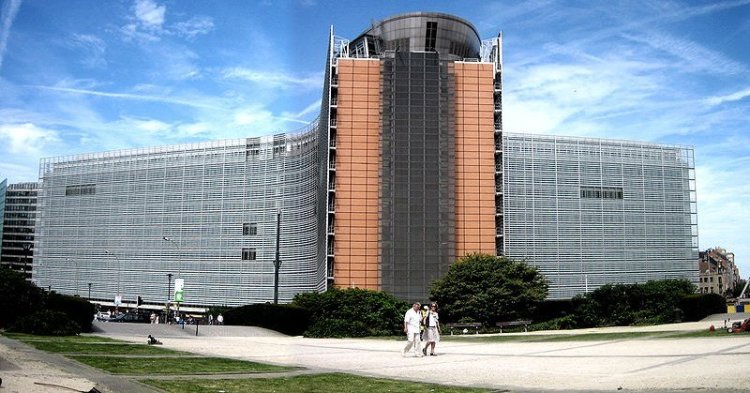Eurosceptic argument: The EU is a bureaucratic monster with too many civil servants, who earn too much money.
This is not true!
The EU commission is actually a very efficient administration (point 1) and the investment of our tax money in the European administration is actually a very sound investment (point 2). Clearly, if you want to save on the cost of bureaucracy in the European Union, the way to go is to build a federal European Union (point 3)!
The EU Commission is actually a very efficient administration
With only about 33000 civil servants, the European Commission prepares, examines, coordinates and implements policy for over 500 million European citizens. That is in fact indeed, a very efficient administration.
According to the EU Commission’s HR key figures card, on January 2014 the European Commission had about 33039 civil servants. Only about 21500 of those civil servants work in Brussels, the other 12000 work in other European and non-European countries. That might sound like a lot, but in comparison it is a VERY efficient civil service. The British Revenue and Customs administration alone has 80000 civil servants. The US federal government employs 1,8 million people. And if we only look at the civil servants on the federal level of the German administration, this already relatively small administration employs about 315.000 federal ‘beamter’.
The investment of our tax money in a European public administration is a good investment
Yes, the European Union and its administration cost us all money. But it’s not money wasted. From all the investments our parents and grandparents have made over their lives, the tax money they invested in building the EU is the single best investment they have ever made.
Of course it is easy to say that the administration of the European Union costs money. But what would have happened if we had never decided to spend that money on building the European Union? The European Union created a single market where we used to have uncoordinated markets and economic interests between member states. How big would the cost of 28 separate and uncoordinated markets be? The EU is preparing legislation on a banking union to make sure that another financial crisis such as the past one can be avoided. What do you think the cost of another financial crisis could be? Finally, we should not forget that the European Union that been an essential factor to made peace sustainable in Europe, so the cost of the European Union is first and foremost an investment in peace and stability against the waste and destruction of wars. What do you think another war would have cost us? It almost impossible to calculate it would have cost us not to have the EU, and the few attempts to actually make that calculation show that the EU has been a club that has been well worth joining. The only thing we are sure about, is that the EU is not a cost, but an investment of which everybody profits.
A Federal EU could be a more efficient EU
The path to a more efficient EU is a more integrated EU, and the path to a more integrated EU is a more democratic EU. So if you are concerned about your taxes, if you are concerned about the use of tax money by governments that don’t want to work together, vote for candidates who support a federal European Union.
While the EU is a pretty efficient administration with clear added value, we agree that it can still become a lot more efficient. Increased efficiency for the European Union can be achieved through further integration. A very recent study about the cost of non-Europe shows that we could save 800 billion € through further integration. 260 billion € could be saved if we would have a single digital market. 235 billion € if we would have a single market for consumer and citizens. 61 billion € we could save by coordinating our fiscal policies on the European level. 50 billion € if we would integrate our energy markets, 26 billion € if we would integrate our defences. And so on. So governments need to do more things together to save costs. But citizens need to decide on those things to save democracy. That is what a federal Union would be.


Follow the comments: |
|
